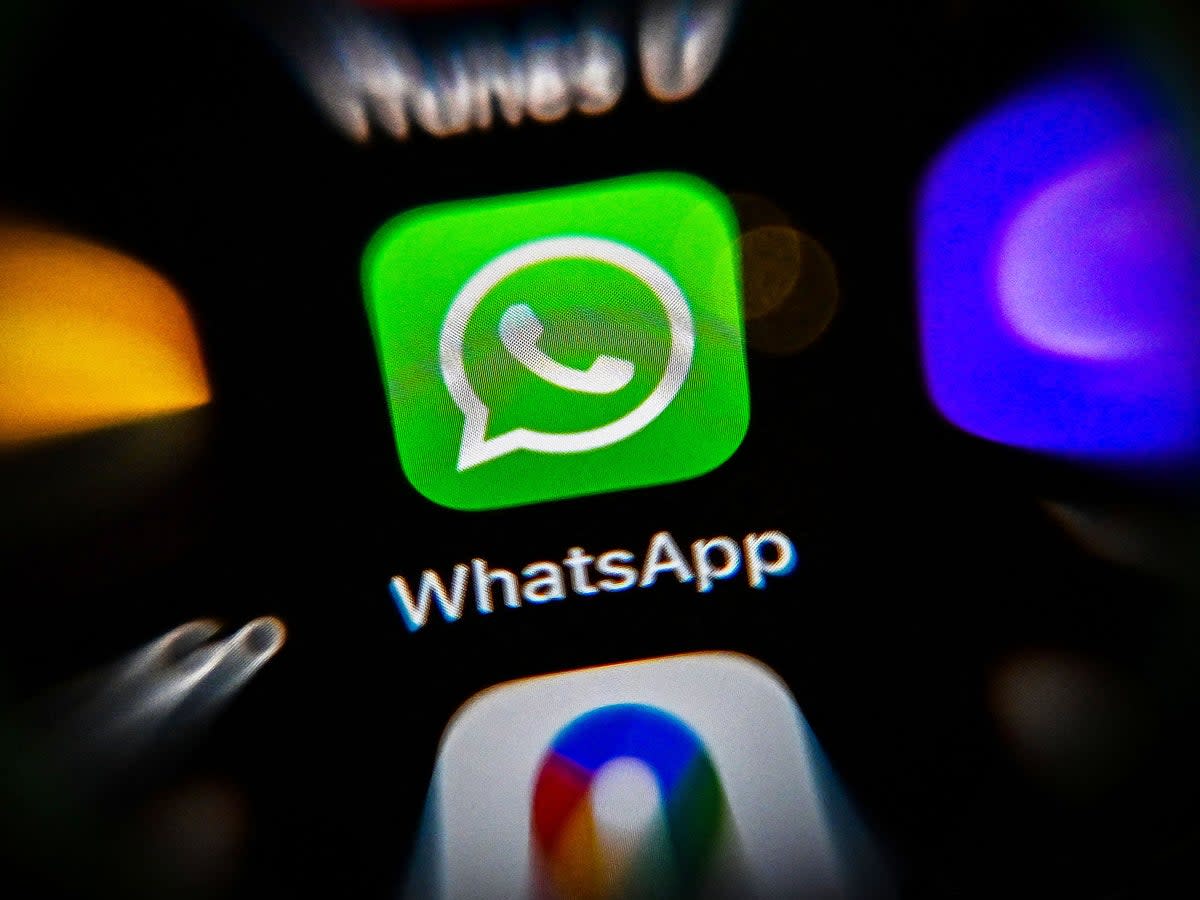The science behind why Whatsapp groups are bad for our health

For Korkor, 26, phones are an endless source of anxiety. “Whenever I see that I’ve got multiple messages at once, it suggests someone is urgently trying to get a hold of me so I assume it’s an emergency. I immediately feel panicked and concerned.” Just as a series of short, snappy messages can spark concern, so can singular lengthy ones. You know, the kind you might draft in your Notes app to settle an argument with a friend or partner. “Receiving paragraphs or large text messages fills me with dread,” Korkor adds. “Tone can be misunderstood over text; it’s always better to hear a person’s voice – and to hear it in real time.”
Today, if you own a smartphone, there are multiple instant messaging platforms at your disposal. WeChat. Signal. Viber. And so on. But one of the most popular is WhatsApp. Purchased by Meta in October 2014 for roughly $22bn (£17.8bn), the app has more than two billion users in total and has become a go-to for professional and personal conversations, allowing users to quickly and efficiently trade information, gossip, and jokes. You can use it to send photos, videos, GIFs, voicenotes and more. It is, for all intents and purposes, a lifeline for many of us. But over the years, it has also become the root cause of a significant amount of anxiety, with every new feature introducing us to a new wave of things to worry about.
These include – but are not limited to – seeing when someone you’re talking to is online, knowing when they’re typing a message to you (and knowing when they stop), seeing when they’ve read your message (and therefore chosen not to reply to it), and seeing when someone was last active. Thankfully, you can turn most of these features off. But that won’t necessarily put an end to your worries.
“I find it so overwhelming,” says Tom Bourlet of party planner Fizzbox, who uses WhatsApp for work as well as for socialising. While read receipts cause concerns (“I always worry I will appear rude if I don’t reply right away”), it’s the groups that are a particular source of angst for him. “There are so many constantly being made for every kind of meetup or event,” he adds. “People seem to post relentlessly. I have ADHD and find I have to bury myself in what I’m doing and don’t have time to check messages, otherwise my focus will go. I find myself constantly playing catch-up and reading through plenty of messages.”
Say you’ve had the audacity to turn your phone off while you’re working. You could easily return and find you’ve missed more than 100 messages in a particular group, because everyone else happened to be on their phones at the same time. The pressure to catch up on everything you’ve missed as well as to contribute yourself can be immense.
It doesn’t help, of course, that people today seem to create WhatsApp groups for the most arbitrary of reasons. Sure, there are the obvious ones: birthday dinners, Christmas parties, neighbourhood watches. Then there are the more obscure ones created for every purpose, from planning a brunch to providing a space to talk about Love Island. Then there are some with absolutely no point at all except to create some sense of social belonging that can be both validating and isolating at the same time.
“WhatsApp groups are characterised by all the types of qualities seen in other social settings where individuals are competing for attention,” explains Marc Hekster, Consultant Clinical Psychologist at The Summit Clinic in Highgate. One of the biggest issues is that the more people in the group, the harder it is to work out how to establish the group dynamics. It’s a lot easier to navigate, for instance, an in-person group. “As a result, it can become an uncontrollable space where individuals are reduced to fantasy objects upon which the senders’ feelings, be they positive or negative, can be projected,” adds Hekster. “This will inevitably produce anxiety and division and can, in some cases, lead to a kind of ganging up scenario that can happen very suddenly and unexpectedly, leaving more naïve or vulnerable people trapped in something which can feel overwhelming and isolating.”
It can be helpful to remember we aren’t really designed to be in touch with this many people at one time
Zoe Clews
Perhaps one of the worst things is that you can be added to a WhatsApp group without your consent. “I’ve been invited to birthdays and hen dos without being told ahead of time and then feel so awkward having to say I can’t make it in front of a group of strangers,” says Victoria, 32. “Being a part of so many different ones at one time always just makes me worried that I will place a message in the wrong group, talking about a plan that will not involve certain people.”
Then there is the careful art of knowing when to leave a group – and dealing with the ramifications of people seeing you leave it. Up until August last year, group members would be notified whenever someone left a group. Now, WhatsApp has introduced the option to “silently” leave one without notifying anyone except for the group’s admins. Other privacy measures have also been introduced, such as choosing who can see when you’re online.
The trouble is that there’s only so much these platforms can do to alleviate the anxieties they cause. And for many of us, it’s not as simple as just abandoning them altogether. WhatsApp and other apps like it have become such core structures of modern life that deleting them could hinder us socially and professionally. Instead, we simply have to learn how to manage them better – and that starts with creating a bit of psychological distance.
“It can be helpful to remember we aren’t really designed to be in touch with this many people at one time,” says hypnotherapist Zoe Clews, who specialises in anxiety. “So rather than beating yourself up for not being able to ‘keep up’ or ‘on top of messages’, try to realise that it’s just not possible and that’s fine.”
As well as trying to shift your focus to real-life relationships – by phoning friends instead of messaging them, for example – Clews also suggests trying to be more considerate about your own digital communications. When you’re speaking to someone instantly, it can be easy to send messages you don’t mean and for those messages to get taken out of context.

“When we feel pressured to respond, we can find ourselves rattling out a reply for the sake of it and not necessarily with what we truly feel or think,” explains Clews. “Give yourself permission to pause and sleep on it and simply send a holding message saying ‘I’ll get back to you tomorrow on this’.” This is particularly important for what Clews describes as “highly charged messages” like those aforementioned paragraphs you might send or receive in an argument.
“If we receive an angry message, it’s all too easy to knee-jerk into an angry response and you can find yourself furiously typing, engaged in an addictive Whatsapp battle that can run on to the early hours of the morning,” she says. “If you take your time to cool down before responding, you’ll likely find you respond from a place of increased neutrality and save yourself time, energy and saying something you may well regret.”
The quicker you can incorporate all this into your messaging style, the better. After all, there are also many positive sides to being able to communicate in this way – but we’re only going to enjoy the benefits if we learn how to handle the downsides.
“By turning off my read receipts, I’ve managed my relationship with WhatsApp anxiety,” says Korkor. “I find that the fear of ignorance is at the root of why many people are anxious about it: the idea that someone can see your message and ignore you is a tough pill to swallow. But it’s important to recognise people are chronically online, they likely have multiple contacts and conversations going on at one time and meeting that demand is exhausting. We should have more grace, be more patient and also spend less time on our phones.”

